Description
The honey processed Koke is what got us first loving the Koke Co-op. Fruity, sweet and wild! Although a honey processed, this cup tastes more like an old world Natural Processed. A very slow dried exotic Honey.
The Koke cooperative was established in 1975, and joined The Yirgacheffe Coffee Farmers Cooperative Union (YCFCU) in 2002. It currently has 1,153 member farmers. All of the members grow their coffee on plots of land under 4 hectares. By joining the YCFCU, the KOKE cooperative has benefited from being a part of a larger cooperative and a network of coffee producers. YCFCU has built schools, helped bring electricity to small villages and communities, and built bridges to make transportation safer and easier.
This lot of Koke Honey was sourced from a total of around 1200 smallholder farmers from Birbes Kela, Koke, Konga, Wedessa, and Tisho. They bring their harvested cherries for processing at the Koke washing stations.
Tasting Notes:
A very sweet and fruity cup of coffee. Best at a light to medium roast. Good body with some crisp floral tones right upfront. The floral will quickly fade into strong and diverse red fruit tones, more pronounced as the cup cools. The floral/fruit will pull some balance with a chocolaty cup profile as you push into the medium roast levels, just a hint of classic Yirgacheffe tea like spice in the aftertaste.
Roasting Notes:
To see this cup shine, keep it before second crack. Just touching 2nd crack is an easy roast point to hit and still very tasty, a good starting spot if in doubt. Higher chaff and a bit uneven roasting. If shooting lighter, make sure the bulk of beans get through first crack. Setup will smooth it out greatly, hard to wait but we though best on day 3.
Honey Processing
Harvested cherries are fermented in-cherry for two days prior to being pulped. The pulped coffee is then dried on raised beds to its optimal humidity.
Dry Milling
Coffee is prepared for export at Tracon Trading’s coffee cleaning and storage plant on 30,000 sq meters of land in Addis Ababa. The plant is equipped with modern Pinhalense coffee processing machines and a Buhler Z+ color sorter. The machine has the capacity of processing six tons per hour. Beans pass through a final hand sort on conveyor belts. The plant’s six storage silos have a capacity of roughly 15,000 metric tons. The warehouses are clean, with ample lighting and ventilation, which are ideal for maintaining the quality of the coffee.
Washing Station
In 2022, due to the high demand of the cup profile Koke Honey offers, we were able to expand our procurement to an additional washing station near the Koke kebele. We are proud to introduce the addition of the Birbes Kela washing station that delivers the same high quality and tasting notes as the Koke washing station. Both are located in the Yirgacheffe district of the Gedeo Zone.
This lot of Koke Honey was sourced from a total of around 1200 smallholder farmers from Birbes Kela, Koke, Konga, Wedessa, and Tisho kebeles bring their harvested cherries for processing at the Koke and Birbes Kele washing stations.
Ally has a long-standing relationship with the Koke washing station, which was built in 2011 and has seen many improvements since 2015, when the washing station staff began providing guidance to contributing producers regarding steps to increase coffee quality. We have been providing feedback to Koke and sourcing with them for more than five years, and we look forward to many more years of fruitful partnership.
The Birbes Kela washing station, located in the Birbes Kela kebele, is owned and operated by Semira Negash. The site was founded in 2020 and operates as a vertically integrated partner of Tracon, one of our exporting partners in Ethiopia. Shortly after opening her washing station, Semira quickly established herself as a producer of high-quality coffees with a strong placement in Ethiopia’s 2021 Cup of Excellence.
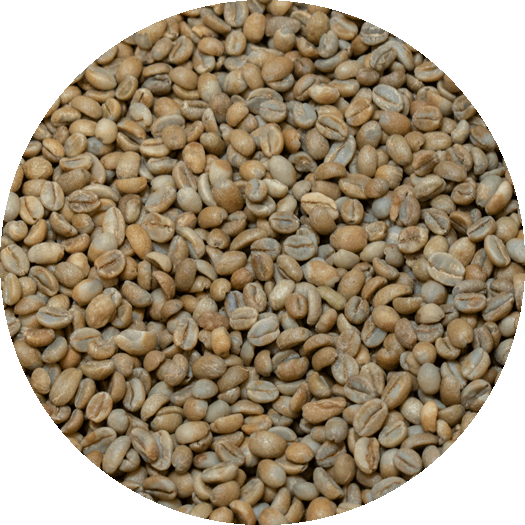
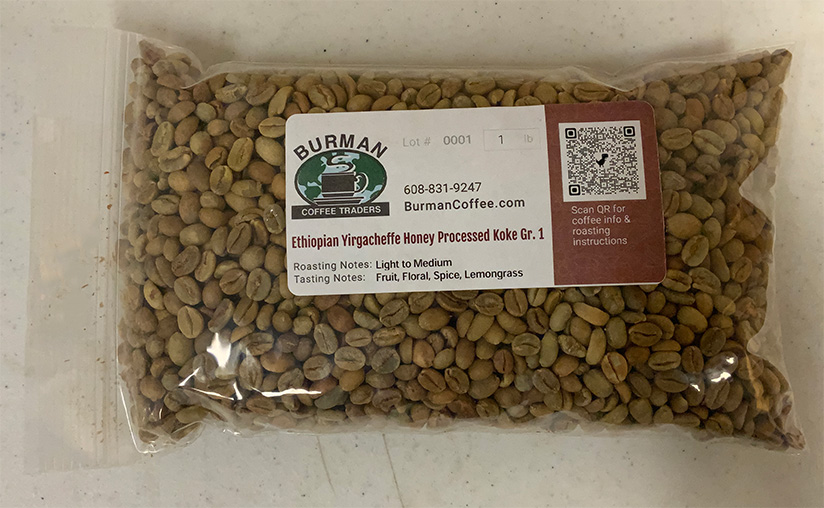
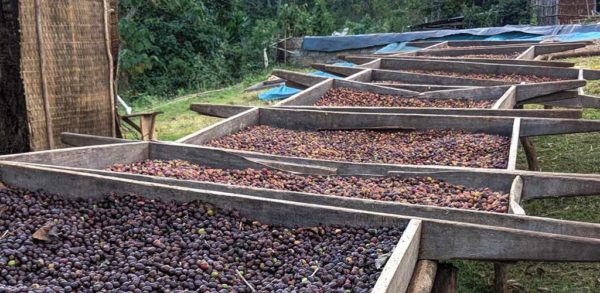
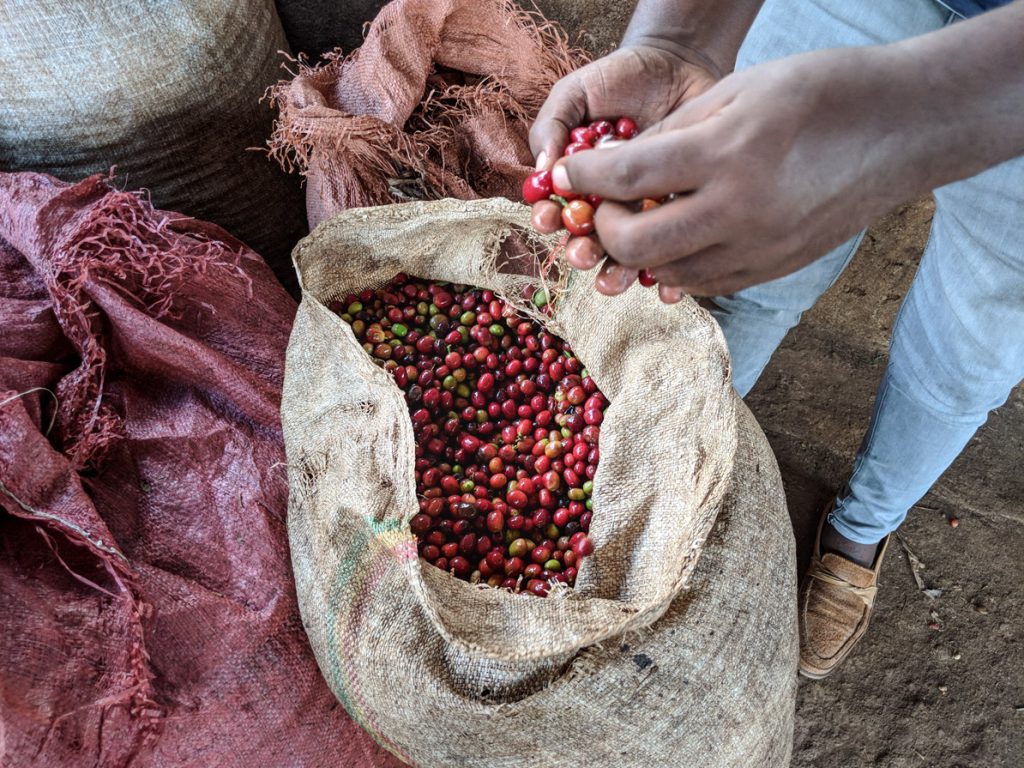
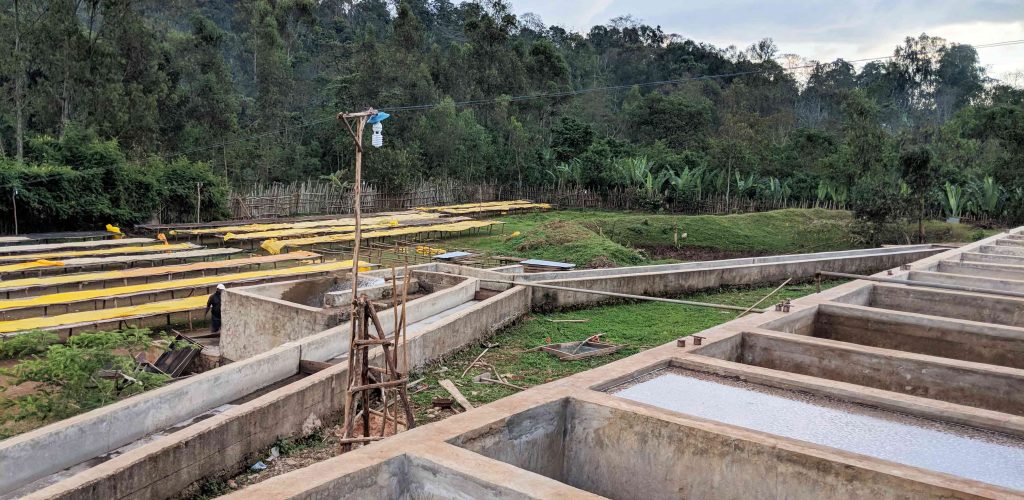
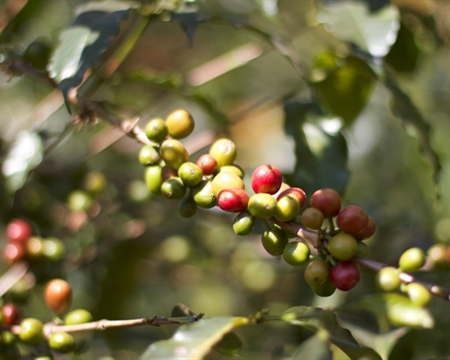
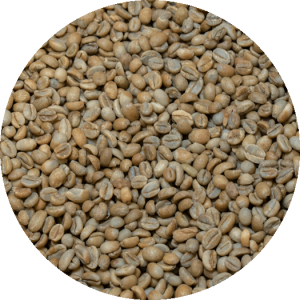
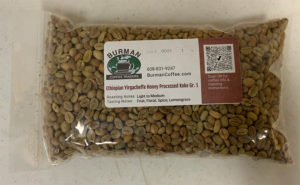
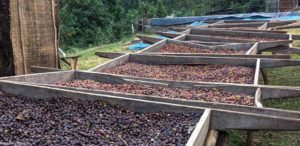
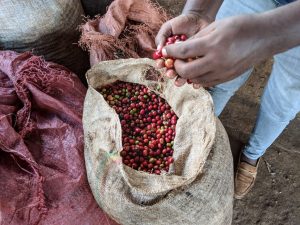
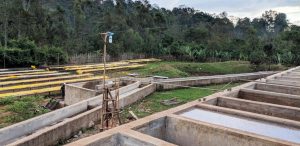
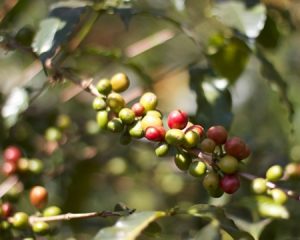
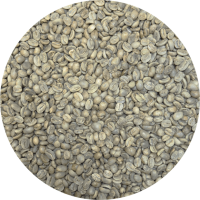
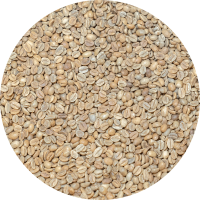



Rushad Daruwala –
The roast was very uneven, some beans were dark and others light. The roasted beans did not look promising. Tow days after roasting the beans had a fruity aroma, classic Ethiopian nose. The first cup of drip coffee was delicious. All the right fruit flavors. Also great tasting espresso and americano.
Kal L (verified owner) –
Takes many different roast levels. Many different flavors are possible depending on profile. My preferred roast style and air roast profile for this bean resulted in a citrus milk chocolate BLUEBERRY bomb accented by flowers in the brewed aroma. Has flavors of natural processed Ethiopian coffees but with higher clarity. Does appear to roast a little two-toned but that is just the chaff which gets darker than most of the chaff from other roasts and is shed the darker you roast. If you like natural processed Ethiopian coffees or just chocolatey or blueberry notes in general you owe it to yourself to try this one too.
Rushad Daruwala (verified owner) –
Roasted to medium in air roaster. Very floral with a fermented taste. It is an acquired taste.
mail.matt.morgan (verified owner) –
Pretty nice Ethiopian! Has the sort of spice and fruity acidity I would expect. I’ve tried this roasted both at City and Full City+ (for espresso) and it delivers the goods both ways.
kevinrcurt (verified owner) –
My new favorite. Loved the candy and fruit notes. Smells and tastes delicious.
Ended roast before 1st crack is finished. Love a light roast and this was perfect for that